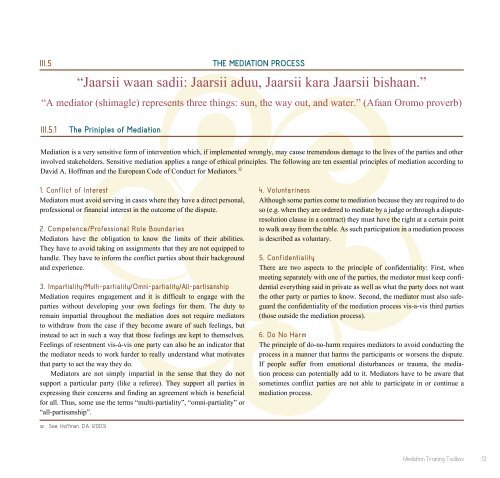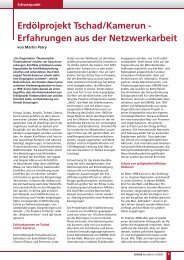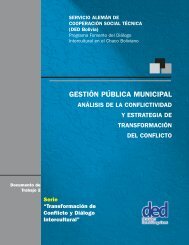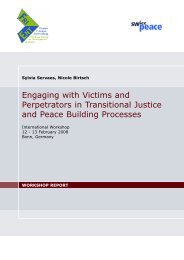Merging Ethiopian Wise-Counsel Mediation and Facilitative ...
Merging Ethiopian Wise-Counsel Mediation and Facilitative ...
Merging Ethiopian Wise-Counsel Mediation and Facilitative ...
- No tags were found...
Create successful ePaper yourself
Turn your PDF publications into a flip-book with our unique Google optimized e-Paper software.
III.5THE mediation process“Jaarsii waan sadii: Jaarsii aduu, Jaarsii kara Jaarsii bishaan.”“A mediator (shimagle) represents three things: sun, the way out, <strong>and</strong> water.” (Afaan Oromo proverb)III.5.1The Priniples of <strong>Mediation</strong><strong>Mediation</strong> is a very sensitive form of intervention which, if implemented wrongly, may cause tremendous damage to the lives of the parties <strong>and</strong> otherinvolved stakeholders. Sensitive mediation applies a range of ethical principles. The following are ten essential principles of mediation according toDavid A. Hoffman <strong>and</strong> the European Code of Conduct for Mediators. 321. Conflict of InterestMediators must avoid serving in cases where they have a direct personal,professional or financial interest in the outcome of the dispute.2. Competence/Professional Role BoundariesMediators have the obligation to know the limits of their abilities.They have to avoid taking on assignments that they are not equipped toh<strong>and</strong>le. They have to inform the conflict parties about their background<strong>and</strong> experience.3. Impartiality/Multi-partiality/Omni-partiality/All-partisanship<strong>Mediation</strong> requires engagement <strong>and</strong> it is difficult to engage with theparties without developing your own feelings for them. The duty toremain impartial throughout the mediation does not require mediatorsto withdraw from the case if they become aware of such feelings, butinstead to act in such a way that those feelings are kept to themselves.Feelings of resentment vis-à-vis one party can also be an indicator thatthe mediator needs to work harder to really underst<strong>and</strong> what motivatesthat party to act the way they do.Mediators are not simply impartial in the sense that they do notsupport a particular party (like a referee). They support all parties inexpressing their concerns <strong>and</strong> finding an agreement which is beneficialfor all. Thus, some use the terms “multi-partiality”, “omni-partiality” or“all-partisanship”.32 See: Hoffman, D.A. (2003).4. VoluntarinessAlthough some parties come to mediation because they are required to doso (e.g. when they are ordered to mediate by a judge or through a disputeresolutionclause in a contract) they must have the right at a certain pointto walk away from the table. As such participation in a mediation processis described as voluntary.5. ConfidentialityThere are two aspects to the principle of confidentiality: First, whenmeeting separately with one of the parties, the mediator must keep confidentialeverything said in private as well as what the party does not wantthe other party or parties to know. Second, the mediator must also safeguardthe confidentiality of the mediation process vis-a-vis third parties(those outside the mediation process).6. Do No HarmThe principle of do-no-harm requires mediators to avoid conducting theprocess in a manner that harms the participants or worsens the dispute.If people suffer from emotional disturbances or trauma, the mediationprocess can potentially add to it. Mediators have to be aware thatsometimes conflict parties are not able to participate in or continue amediation process.<strong>Mediation</strong> Training Toolbox51
















